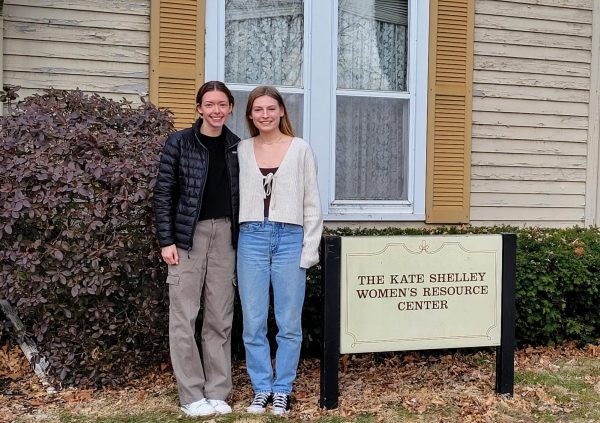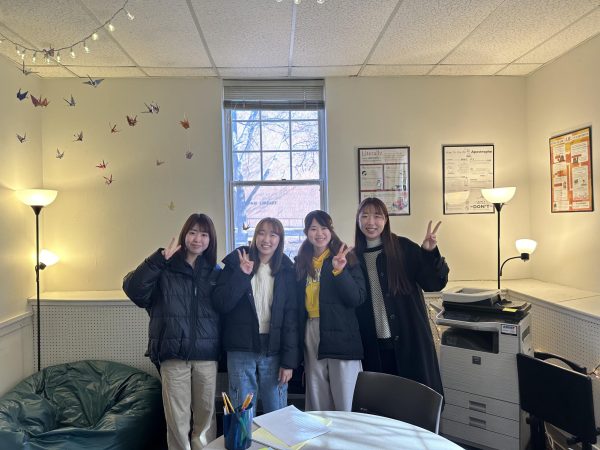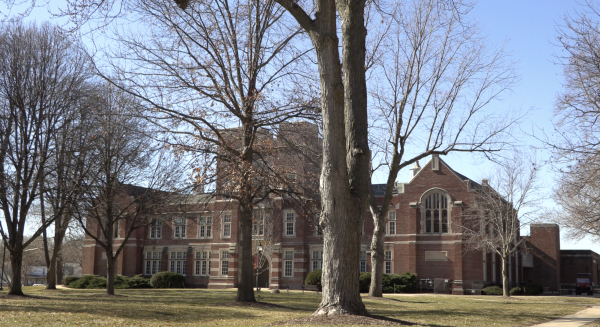Simpson counseling partners with ForWard Consulting
March 5, 2021
Counseling will be providing students of color with compensation to ForWard Consulting to provide support groups and access to counselors of color.
Breanne Ward, the founder of ForWard Consulting and a nationally recognized certified rehabilitation counselor, specializes in race-related, childhood, sexual, and intimate partner trauma. Ward utilizes cognitive behavioral therapy, dialect behavioral therapy and trauma-informed care practices in order to treat patients.
Students and faculty were invited to meet with Ward and Simpson College Associate Dean of Counseling, Health and Leadership on Monday, March 1.
This initiative was born as a direct response to student demands for access to a counselor of color.
“I know students asked for us as a college to hire a provider of color and so this is not a direct meaning of what it is students are hoping for, and I definitely understand that this is not enough,” Ellie Olsen, Associate Dean for Counseling, Health & Leadership, said. “It’s not what students asked for, but what it is, is access to a couple of counselors of color in the community.”
The college will pay for an initial appointment, which is a $200 cost. After the initial appointment with ForWard Consulting, payment will be arranged between the student and the provider.
“That payment is going to range, but we’re not leaving students with a $200 recession after that,” Olsen said. “If students have insurance, then Breanne will bill the insurance, typically after that students will pay a copay which is anywhere from $0-35 typically a session. If students can’t cover that, Breanne will work with them on creating a curated fee structure that will be manageable by them.”
Fee structures will be based on the student’s ability to pay.
Olsen is also looking into actress Taraji P. Henson’s Boris Lawrence Henson Foundation, which aims to provide African American’s with accessible mental health care.
In addition to one-on-one counseling with Ward, students of color will be able to attend support groups.
“What that unique experience is, talking with someone who is a part of their community in a way that’s different from what my staff or I can offer,” Olsen said.
Olsen stated that this is just the start of a much larger process. The response of students and usage of these new initiatives will dictate how effective the school views the initiative as being.
“I know at this point that the college is not going to give me permission to hire another full-time counselor,” Olsen said. “It’s not going to be an immediate movement to that demand being met. I’ve been very clear with my boss, Heidi Levine, and the students I’ve spoken to on BSU that I believe in building things, and that is what this can be.”
The partnership with ForWard Consulting is just the first step in a much larger process. Non-white counselors in central Iowa can be difficult to come across and are often in incredibly high demand. “One of the things we talked about on Monday night is even when we looked for providers in the community to be able to refer our students of color to, there aren’t a lot of providers of color in Des Moines. They’re often very full because they’re more sought after on some level.”
In addition to a limited pool of candidates, Olsen says bringing a counselor to small-town Iowa can be a challenge on its own.
“The work that is required to get to a point where we can be an attractive place for a counselor of color may just take a little bit of time too,” Olsen said. “I think if we can show that our students want it and they’re using it, building on this is really the goal.”
Funding serves as another issue. In her 14-years of experience, Olsen has gone from being Simpson’s only full-time counselor to being one of three full-time counselors as of next semester, as Alex Rohn is being moved from part-time to full-time.
“We did that by showing that people are using it, students are wanting more, and so we need more,” Olsen said.
Olsen also recognized that this isn’t an ideal situation, rather it’s a good sturdy foundation to build upon.
“I don’t want to paint something that isn’t what students asked for as totally rosy, I don’t want to not acknowledge the limitations here but at the same time, I see this as a way to get students feedback about what they want and to expose students to options before we go all-in on something,” Olsen said.
Olsen is looking forward to working with BSU as well as other groups in order to find a good solution.
“There’s a lot to be explored in the types of services and the types of supports that we can offer our students and so I’d rather work in conjunction with the BSU and our students of color to help them better know what their options are so that together we can come up with the best most meaningful supports for our students,” Olsen said.
Unfortunately, funds from the student health and wellness fee cannot be used for counseling, as the programs serve as two different initiatives that have been developed in separate timeframes.
“The health and wellness fee is something that my office and health services proposed two years ago to the cabinet,” Olsen said. “We proposed the fee last year and it was approved last year in the spring before COVID. It’s been approved for over a year, but because of the way that fees and tuitions work we couldn’t implement it until next academic year because of all the complicated systems that go into changing tuition.”
The fee was It was approved mostly to cover increasing health services staffing, which includes hiring a nurse practitioner, who will be able to prescribe medication, including mental health medication, to students.
The 12 session limit will also be removed, and more effort will be focused on mental health outreach across campus.
Olsen also acknowledges the need for access to a counselor of color isn’t something new to Simpson students. However, it’s taken a while to be able to get things moving.
“This initiative is not something we didn’t know prior to August or September, but the energy around that need has become more apparent for all kinds of reasons, so we’ve gotten to the point that the college is willing to give funds towards that,” Olsen.
Olsen says that she can understand the confusion between the new health and services fee and the initiative with ForWard consulting.
“I understand why people are correlating the two, there’s just a lot of complicated processes that make them very different,” Olsen said.
















